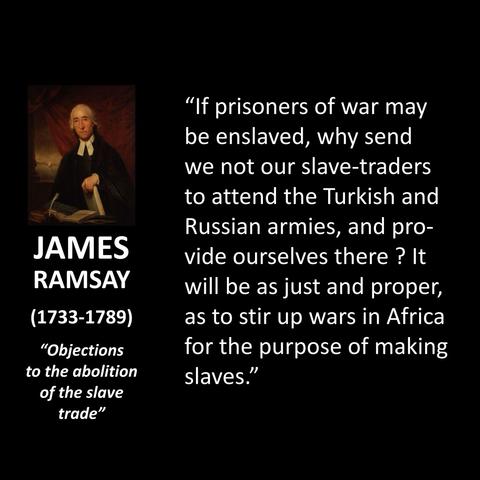https://youtu.be/kitg4HbpR2g?feature=shared
Psalm 1:1a-3c Happy are they who have not walked in the counsel of the wicked… Their delight is in the law of Abba God… They are like trees planted by streams of water, bearing fruit in due season, with leaves that do not wither…
Introduction
We can feel the movements of God, we can even sense them coming from a distance like placing a hand on a railroad track and feeling the power of the locomotive surge even if still far off. But do we understand? No, we don’t. And if we do understand, we are very slow on the pick-up because God rarely acts in ways we expect (want?) God to act. It’s not that we lack common sense or reason, it’s just that the common sense we rely on and the reason we have are influenced by the kingdom of humanity and its ideologies and dogmas, and we are well soaked in that marinade.
I’m not talking about the bad things that happen to you or the good; these need a level of parsing out—what part of these events is human, chance, and divine influence, etc.—and are beyond the scope of a sermon. What I am talking about is God’s movement within the cosmos, the divine foot falls (to refer to Gen. 3) of God walking among us, of the activity of God’s mission and divine revolution of love, life, and liberation. We are trained to expect God to work within the systems and structures we’ve devised and implemented; but God doesn’t. These systems and structures—even the well-intentioned ones—run their course and expire because they’re unable to born again into a new era. So, God moves and acts again (and still!) liberating God’s beloved from these systems and structures, but mostly from themselves.
But we’re always confused, always caught off guard, always slow to understand what God said, what God’s will is in the world and how we actually participate in that will. And because we are hard of hearing and our eyesight needs (always) better lenses, we must, like the disciples, be told repeatedly—not just once at our baptisms or at our confirmations. We must be reminded every Sunday that the deeds and movements of God’s reign in the world are not to be confused with those of the kingdom of humanity. It’s why we repeatedly listen to the various Gospel authors tell us about Jesus; it’s through Jesus, for Christians, we see, hear, and encounter God, through whom we are caught up in the divine mission by the power of the Holy Spirit, through whom and by whom we even can begin to know what God’s will is in the world. It is through Jesus’s teachings to his disciples yesterday that Jesus teaches us today; it is through Jesus’s actions then that we can see God on the move now and follow.
Mark 9:30-37
And then they went into Capernaum, And then in the house it happened that he was inquiring of them, “What were you debating on the way?” And they were being silent, for on the way they were debating among themselves who [was] greatest… And then he received a child and placed them in the middle of [the disciples] and then he embraced [the child] and said to [the disciples], “Whoever receives one of these children in my name, receives me. And whoever receives me, receives not me but the one who sent me.” (Mk. 9:33-34, 36-37)
Mark starts this portion of text with And from there. From where? It’s uncertain; the gospels aren’t mean to be detailed travel diaries.[1] So, from somewhere Jesus and his crew leave, and he was not desiring to be recognized, thus they avoid popular areas by passing by the sea of Galilee.[2] Why did he avoid popular, public haunts? Jesus’s goal here is to teach the disciples.[3] The reign of God is definitely made known to the world through Jesus’s ability to heal and restore, to literally liberate people from physical, spiritual, social, political captivity, but what does that do for continuing the mission of the reign of God if no one understands beyond the wonderful but fleeting miracles? Jesus’s being in the world must transcend the wonderful physical, fleshy healings that are caught in time and space; the hearts of the disciples and all those who follow Christ must have a heart and mind transplants. They must see things through divine spectacles so that they can continue and participate in God’s mission in the world after Jesus leaves them.
So, Jesus focuses on the disciples and teaches them, “The son of humanity is being handed over into the hands of humanity, and they will kill him, and then after being killed for three days he will rise from the dead.” This isn’t new information to the disciples; it’s a reminder.[4] Jesus is being handed over, he is the object of the handing over. By whom? The subject is ambiguous.[5] Humanity is definitely in view here,[6] but so is God, for Mark—God’s power will be made known through weakness, and this is part of the mission of the reign of God the disciples will learn shortly.[7]
But they were not knowing the meaning of[8] The Word[9] and they were afraid to question him. The disciples do not understand (and this after the incident with Peter in chapter 8), and they are afraid to ask him (maybe because of the incident with Peter in chapter 8). Instead, rather than ask Jesus what he means (again) and gain understanding, they decide to debate something else among themselves, further revealing that whatever they have in mind is in direct conflict to what Jesus—thus God—has in mind.
Now, when they enter Capernaum and go to a house, Jesus questions them,[10] “What were you debating? The disciples are silent. This questioning and responding silence further expose their inability to know/understand what Jesus means.[11] For on the way toward one another they debated who [was] the greatest. So they hide, like their foreparents back in the Garden.[12]And like their foreparents, they are guilty; guilty like schoolchildren.[13] So, Jesus takes the role of the teacher because all is not well, And then he [deliberately][14] sat down and called to himself the twelve and says to them, “If someone wishes to be first they will be last of all people and a servant of all people.” Jesus exposes their question about “who is the greatest” as not only inappropriate,[15] it’s also diametrically opposed to the reign and mission of God.
Like children, Jesus must gently grab their chins and reorient their gaze to him and to God. He does this through a child, And then he received a child and placed them in the middle of [the disciples] and then he embraced [the child] and said to [the disciples], “Whoever receives one of these children in my name, receives me. And whoever receives me, receives not me but the one who sent me.” Jesus exhorts the disciples to see that their priorities are skewed: it’s not about being great as the kingdom of humanity defines greatness because in that economy these children have no status.[16] Rather, it’s about relinquishing the valuations of the kingdom of humanity and identifying with those who have no status within the reign of God[17] (divine equity!) and therein bringing dignity and worthiness to even the least of these in the name of Christ and to the glory of God by the power of the Holy Spirit. This is divine justice and greatness says Mark’s Jesus: to upend the traditional valuations of the kingdom of humanity with the divine equity of the reign of God![18]
Conclusion
To identify with these little ones, to receive these children who had no rights or self in the world[19] and treat them as if they did is how God’s glory and presence is made known and experienced in the world. To represent God, according to Mark’s Jesus, is to disabuse oneself of phantasmagorical notions of greatness and embrace weakness, to leave behind grasping for “powerful” according to humanity and opt, instead, for powerlessness according to God.[20] To care for the poor, the weak, the sick, and anyone who is experiencing some form of oppression (physically, emotionally, mentally, spiritually) is to receive Jesus and thus to receive God and if this then it is by these ones who care for the least of these who bring Jesus thus God close to the suffering and so goes the divine revolution of love, life, and liberation in the world to the glory of God and for the wellbeing of the neighbor (which includes our own wellbeing). According to Mark, this is the will of God, this is what God is (still) doing in the world; thus, this should be what qualifies and quantifies Christian will, our will. Christian praxis in the world is not about competing for greatness but identifying with those who lack it; this is what it means to be the grown Christian of Ephesians, and this is what it means to be simply human. To close, I want to quote a late 20th century American theologian, Paul Lehmann,
The power to will what God wills is the power to be what [humanity] has been created and purposed to be. It is the power to be and to stay human, that is, to attain wholeness or maturity. For maturity is the full development in a human being of the power to be truly and fully [themself] in being related to others who also have the power to be truly and fully themselves. The Christian koinonia is the foretaste and the sign in the world that God has always been and is contemporaneously doing what it takes to make and to keep human life human. This is the will of God ‘as it was in the beginning, is now, and ever shall be, world without end.’[21]
Amen
[1] R. T. France, The Gospel of Mark: A Commentary on the Greek Text, NIGTC, eds. I. Howard Marshall and Donald A. Hagner (Grand Rapids: Eerdmans, 2002), 371.
[2] France, Mark, 371. “In this area Jesus is well known, and we might expect to hear again of the gathering of enthusiastic crowds. But that is not no Jesus’ purpose., and he escapes recognition, presumably by avoiding areas of populations as he had to do in 1:45.”
[3] France, Mark, 371. “Jesus’ mission is now to teach his disciples, and that takes priority over any public activity.”
[4] France, Mark, 371. v. 31, “The imperfect tenses, as well as the fact that this is the second of a series of three such predictions, indicate that what is stated in this verse is the continuing theme of his teaching at this stage. It is thus a reminder that than adding anything new to what we already know from 8:31.”
[5] William C. Placher, Mark, Belief: A Theological Commentary on the Bible, eds Amy Plantinga Pauw and William C. Placher. (Louisville: WJK, 2010), 133-134. παραδίδωμι “It always appears in the passive voice, so that its subject remains ambiguous…Mark has already said that the Son of Man must undergo suffering, be rejected, be killed, and rise again. This is all part of a divine plan. Yet it is also the action of bad people acting out of bad motives. Mark will try in the account ahead to show through his narration how it can be both.”
[6] France, Mark, 372. “Probably the choice of the word is mainly dictated by the play on words–ὁ υἱὸς τοῦ ἀνθρώπου in the hands of the ἄνθροποι—a turn of phrase which is deeply ironical in the light of the sovereignty over all humanity which is predicted for the υἱὸς ἀνθρώπου in Dn. 7:14.”
[7] France, Mark, 372. “In such usage παραδίδωμι indicates that the object of the verb is in the power of the subject, and implies that the outcome is one which the object would not have chosen. There is thus an implication of hostility, even though the verb does not in itself mean to ‘betray’…[God as subject] as secondary connotation of the use of the verb in this context.”
[8] France, Mark, 372. “ἀγνοέω normally mans to be ignorant, but in relation to a saying the meaning shades easily into comprehension (‘not know the meaning of’).”
[9] France, Mark, 372. “Mark seldom uses ῥῆμα, and its use probably characterizes the saying as of special importance, a more formal pronouncement.”
[10] France, Mark, 373. “The disciples have been reluctant to question Jesus (v. 32), so he instead questions them, in order to bring out how little they have yet understood.”
[11] Placher, Mark, 134. “The disciples not only fail to understand the fate that awaits Jesus; they fail to understand what it means to follow him. The twelve have been arguing about which of them is the greatest, and, when he asks what they have been discussing, they will not tell him. They do deserve some sympathy. The faults they are manifesting lie deep in flawed human nature.”
[12] Placher, Mark, 134. “Adam and Eve try to hide form God in shame after they have disobeyed God’s command. The disciples are ashamed and refuse to answer when Jesus asks what they have been arguing about.”
[13] France, Mark, 373. Jesus “What were you talking about” question “…is a challenge to ring into the open a debate of which they are apparently ashamed, aware that Jesus will not approve. Hence their silence. There is an almost comical incongruity in the picture of these grown men acting like guilty schoolboys before the teacher an impression which is only heightened when Jesus goes on to use a child as an example to them.”
[14] France, Mark, 373. “he sat down” “This is an issue which must be addressed, and the teacher sits and summons his disciples to gather round and listen.”
[15] France, Mark, 374. “This is such a radical challenge to natural human valuation that it needs constant repetition. The preeminent status in the kingdom of God is characterized by the twin elements of lowliness…and service…The question of τίς μείζων; could hardly be more inappropriate.”
[16] France, Mark, 374.
[17] France, Mark, 374. “The child represents the lowest order in the social scale, the one who is under the authority and care of others an who has not yet achieved the right of self-determination. To ’become like a child ‘…is to forgo status and to accept the lowest place, to be a ‘little one’…”
[18] France, Mark, 374. “In this pericope there is not call…to become like a child…, but rather the injunction to ‘receive’ the child, to reverse the conventional value-scale by according important to the unimportant.”
[19] Placher, Mark, 134-135. “Jesus does not say here that we should be like children; he says we should welcome them. In the ancient world, children were not considered primarily as models of innocence….The distinctive thing about children was their lack of any rights. A father could put a newborn outside to starve to death if he had wanted a boy and got a girl or life the baby seemed weak or handicapped. Children existed for the benefit of their parents—really of their fathers.”
[20] Placher, Mark, 135. “In the Aramaic that Jesus was presumably speaking, the same word (talya) can mean either ‘child’ or ‘servant.’ Welcoming children means helping the most vulnerable. Jesus is thus not urging childishness in any form on his disciples but telling them to stop competing about who will make the top and make sure they care for those on the bottom.”
[21] Paul Lehmann, Ethics in a Christian Context (New York: Harper & Row, 1963), 101.
https://laurenrelarkin.com/2024/09/22/whoever-receives-one-of-these-little-ones/
#Beloved #ChristianPraxis #DivineLiberation #DivineLife #DivineLove #DivineMission #EthicsInAChristianContext #FreedomFromTheSelf #GodSMission #GodSWill #Identification #Jesus #LoveOfNeighbor #PaulLehmann #RTFrance #TheGospelOfMark #WilliamPlacher




